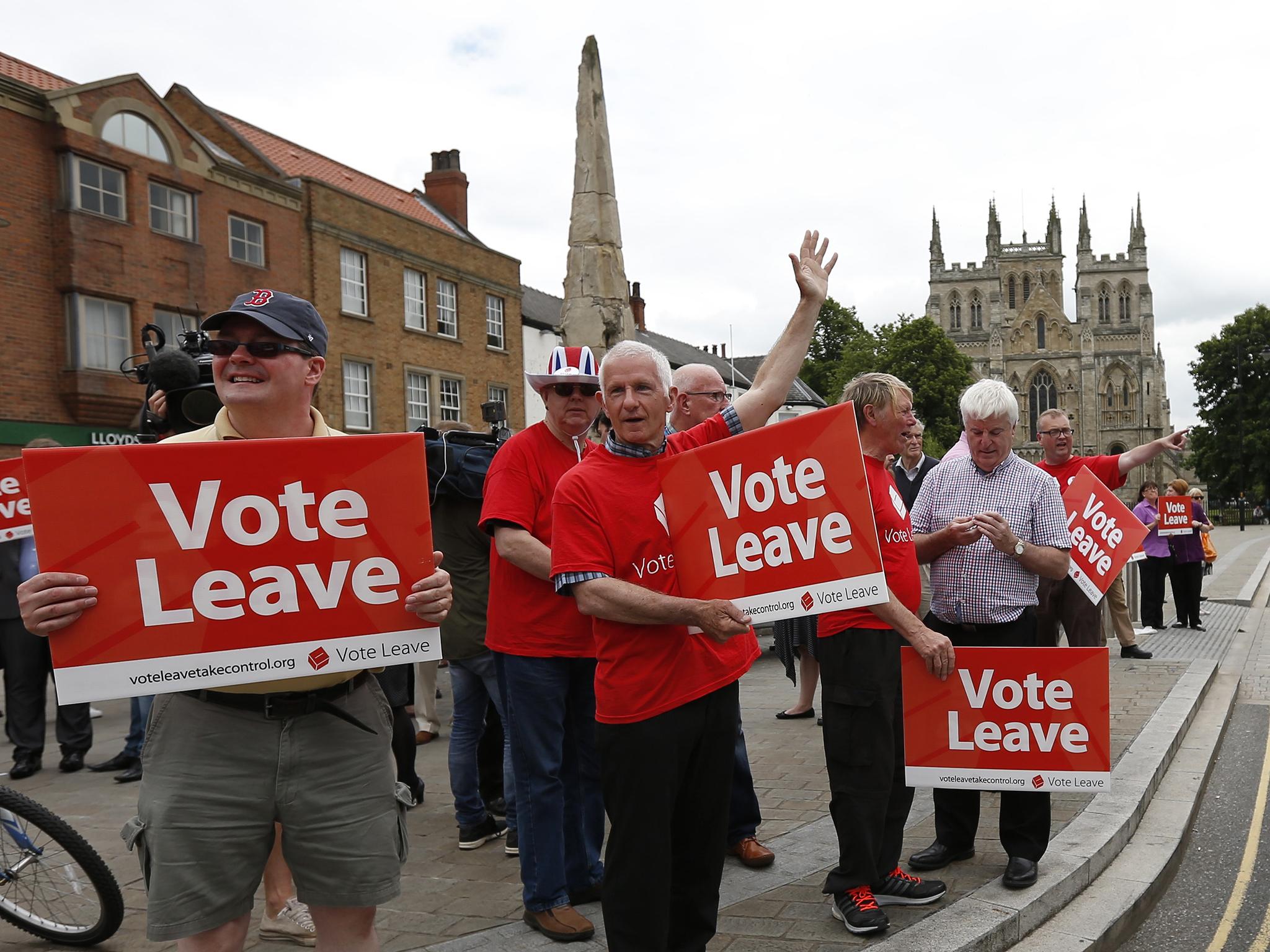The UK is one of the worst countries at converting GDP into actual wellbeing - which could explain Brexit
Across the 163 countries we measured in the world, the UK is one of the poorest performers in ensuring that growth in the economy is translated into meaningful improvements for its citizens

Your support helps us to tell the story
From reproductive rights to climate change to Big Tech, The Independent is on the ground when the story is developing. Whether it's investigating the financials of Elon Musk's pro-Trump PAC or producing our latest documentary, 'The A Word', which shines a light on the American women fighting for reproductive rights, we know how important it is to parse out the facts from the messaging.
At such a critical moment in US history, we need reporters on the ground. Your donation allows us to keep sending journalists to speak to both sides of the story.
The Independent is trusted by Americans across the entire political spectrum. And unlike many other quality news outlets, we choose not to lock Americans out of our reporting and analysis with paywalls. We believe quality journalism should be available to everyone, paid for by those who can afford it.
Your support makes all the difference.Robert F Kennedy once said that a country’s GDP, or ‘Gross Domestic Product’ measures “everything except that which makes life worthwhile.” With Britain voting to leave the European Union on June 23rd, and GDP already predicted to slow as a result, it is now a timely moment to assess what the young US presidential hopeful was referring to.
The question of GDP and its usefulness has vexed policymakers for over half a century. Many argue that it is a flawed concept. It measures things that do not matter and misses things that do. By most recent measures, the UK’s GDP has been the envy of the Western world, with record unemployment and high growth figures. So if everything was going so well, why did over 17 million people vote to leave the EU, despite the warnings about what it could do to their country’s economic prospects?
Our recent annual study of countries and their ability to convert growth into wellbeing (making the most of your money for the benefit of your citizens) sheds some light on that question. While the UK does indeed enjoy high economic growth, it currently ranks in the bottom 20 per cent of converting growth to wellbeing.
Across the 163 countries we measured in the world, the UK is one of the poorest performers in ensuring that economic growth is translated into meaningful improvements for its citizens. Rather than just focusing on GDP, we have measured over 40 different sets of criteria from health, education and civil society engagement, to try and get a more rounded assessment of how countries are performing.
Why does this matter? Because connecting people to the benefits of economic growth is now more important than ever. We are currently seeing a backlash against globalisation as a reaction against vast growing inequality, and the consequences go far beyond Brexit. All across Europe, the far right (and in Southern Europe’s case, the far left) have caused a dramatic shift in the political landscape by promising to roll back globalisation.
While all of these countries face their own challenges, there are a number of consistent themes that come across in our research. Yes there has been a nascent economic recovery since the 2008 global crash, but in key indicators in areas such as health and education, major economies have continued to decline.
This isn’t the case with all countries however. In some Central and Eastern European countries that have recently joined, or are next in line to join the EU, have seen huge improvements across measures including civil society, governance, income equality and the environment. These gains should be praised, given these countries’ recent histories, and the EU has played a fundamental part in promoting what are ‘wellbeing boosters’.
One thing we do know is that when we stop focusing solely on GDP as a measure of a country’s success, the world looks very different. It is a lesson that rich countries can learn and to do so is good for the economy and good for social cohesion too.
These findings provide food for thought for Finance Ministers and central bank governors as they gather in China for the G20 Summit to discuss the global economic malaise.
What I believe Kennedy was referring to was that while GDP has been the most common method for measuring the economic activity of nations, as a measure, it is no longer enough. It does not encompass important factors such environmental quality, free speech, or education outcomes – all things that contribute to a person's sense of well-being.
I believe the sharp hit to growth predicted around the world and in the UK could lead to a decline in the everyday services we depend on for our well-being and for growth – education and employment are two such examples. But policymakers who refocus efforts on improving wellbeing rather than simply worrying about GDP figures could avoid the forecasted doom and may even see progress.
Enrique Rueda-Sabater is a a senior adviser to Boston Consulting Group, a former World Bank director and co-author of the The Private Sector Opportunity to Improve Wellbeing
Join our commenting forum
Join thought-provoking conversations, follow other Independent readers and see their replies
Comments